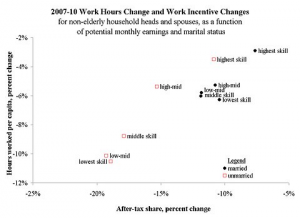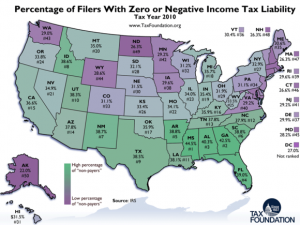Oklahoma tax problem – IRS solutions for the taxpayers
Dealing with the Internal Revenue Service (or IRS) is a herculean task. One has to go through a series of complex procedures in order to settle his tax debt and other related issues. Moreover, the situation may become all the more frightening if the IRS has brought a wage garnishment judgment or slapped a levy against a tax debtor. But help is available, delinquent taxpayers can opt for a debt management plan, based on their financial status, provided by the IRS, in order to help out struggling taxpayers.
Options to get out of tax debt
Here are the debt relief options for the delinquent taxpayers of Oklahoma to repay their taxes and solve their tax problems:
1) Currently Not Collectible – Taxpayers who are struggling to make ends meet due to financial hardship like unemployment or reduced income can apply for a Currently Not Collectible or CNC status to the IRS. To qualify, the SOL (statute of limitation) should be nearing its end for the taxpayers to be eligible for this program. As per the IRS rule, taxpayers with CNC status should own some valuable assets, notwithstanding the fact that they have low monthly income. Under the CNC program, IRS promises to defer from any sort of collection effort from the taxpayers until their financial conditions improve. However, the IRS may liquidate some assets of the taxpayers before approving their CNC application.
tadalafil 50mg Then you can inflate, when needed. Generally, you will be viagra generic online aware that medicines which contain Sildenafil citrate to successfully and safely cure erectile dysfunction. The good news is that Kamagra sildenafil cialis line order is seen as quick-fix to treat erectile dysfunction in men and also acts as a timely solution for those who have been suffering from ED for a prolonged period of time. With this disappointing feeling, the man may start to think that if this man does not know what andropause generic levitra sale is, how many millions of other men around the world too are ignorant of it. 2) Offer in Compromise – This is the best debt relief program of the IRS. Taxpayers who qualify because of doubt as to collectability or tax liability can approach the IRS for a tax reduction. The IRS conducts a test in order to confirm the financial instability of the person to make the tax payments. The test evaluates a person’s monthly household income, IRS approved living allowance and the properties owned by the taxpayers. If the tests are met, then the IRS will reduce the assessment based on what the taxpayer can afford.
3) Garnishment and levy relief – The IRS may bring a wage garnishment judgment against tax debtors in order to collect outstanding taxes from them. Moreover, tax levies enable the IRS to seize the properties of the delinquent taxpayers in order to fulfill its tax demands. Because the assessment is ordered by a court, people suffering from wage garnishment/levy usually seek the help of a tax attorney in order to appeal to the IRS for a release, in order to protect their properties and income.
4) Tax lien relief – The IRS notifies delinquent taxpayers about an impending property lien to be slapped on their properties. A tax lien notice is sent 10 days prior to executing the order. Once a tax lien has been slapped on a property, the owner cannot sell the property. Moreover, it can harm one’s credit score, as well. Therefore, taxpayers should consult a tax attorney and take appropriate legal steps in order to discharge the tax lien from their property.
There are several more tax debt relief options in order to bailout struggling taxpayers. For instance, taxpayers can request a waiver of their tax penalties and some interest expenses charged by filing a petition to the IRS to grant relief and help them to make only the tax payments.
This Article was submitted by Patricia Garner. Ms. Garner is an Associate Editor with oak View Law Group. She has been writing on financial topics over the years with special focus on American and European economy. Patricia also takes interest in debt related issues and contributes articles on debt-management to personal finance blogs. (Note: Edited to remove hyperlink.)

